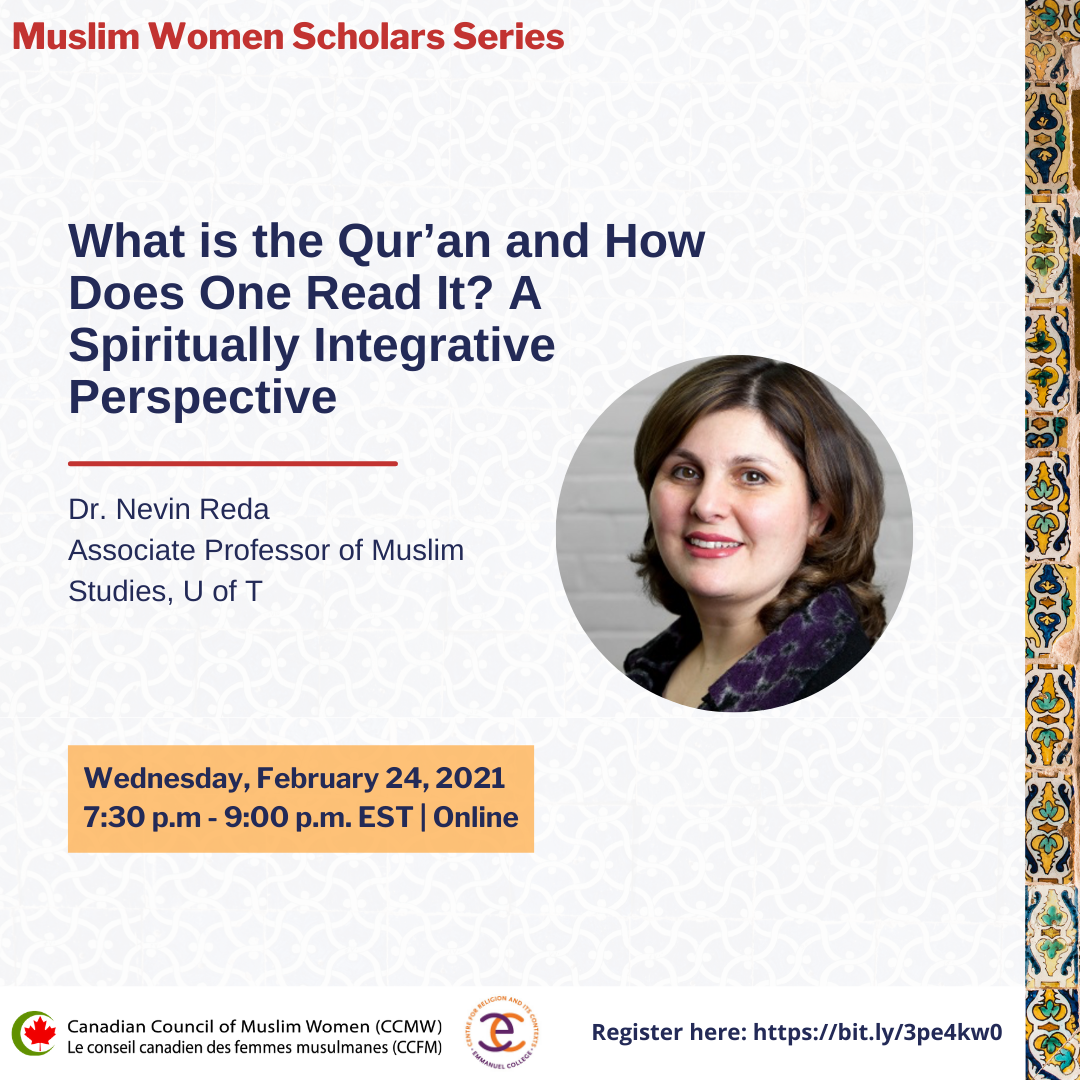What is the Qur’an and How Does One Read It? A Spiritually Integrative Perspective
This seminar explores the function of the Qur’an as a pathway to spiritual advancement and the importance of ethical behaviours within this framework, especially gender justice. It examines classical interpretive methodologies, their strengths and weaknesses and how to make the best of them, showing the importance of thinking for oneself and of engaging the heart in the interpretive process. It explores the Qur’an’s structure, sura after sura, and how each sura builds on the ones before it and addresses a distinctive spiritual growing edge, organized in order of priority. It examines the function of Surat al-Nisa within this pathway and how it works to combat three toxic behaviours within marriage: polygamy, accusations of wifely infidelity, and domestic violence. It takes a closer look at the polygamy verse and its interpretations, showing how, rather than make allowances for polygamy, this verse provides ethical directives that restrict the practice and teach ethical reasoning.
Zoom Seminar
What is the Qur’an and How Does One Read It? A Spiritually Integrative Perspective
Wednesday, February 24, 2021 at 7:30 p.m. - 9 p.m. (EST)
About the speaker:
Nevin Reda is Associate Professor of Muslim Studies at Emmanuel College of Victoria University in the University of Toronto. Her research is located in three areas: Qurʾanic studies, Islamic ethical-legal theory (uṣūl al-fiqh), and interreligious pedagogy. Her first and main specialization is Qurʾanic studies, often utilizing interdisciplinary insights from literary theory, Islamic spiritual care, and/or Biblical Hebrew language and literature, in which she has a master’s degree. She is most interested in examining questions related to the Qur’an’s structure and organization, an emerging area of research that she calls the poetics and hermeneutics of Qurʾanic narrative structure.
Currently, she is examining Surat al-Anʿām and how it fits into the rest of the Qurʾan. In uṣūl al-fiqh, her main interests are in methodology and revising it in ways that are more egalitarian and equitable. She is currently working with Musawah on the new project, “Building Egalitarian Ethics and Jurisprudence of Muslim Marriages.” Her interest in interreligious pedagogy stems from her location at Emmanuel, and has taken her research in new and interesting directions. She is currently exploring the intersection between Christian practical theology and the Islamic theological disciplines.
About the series
The Canadian Council of Muslim Women (CCMW) is pleased to present the Muslim Women Scholars Series. One of CCMW's strategic goals is to promote critical thinking among Muslims and non-Muslims to challenge stereotypes and assumptions about Islam, Muslim women and their families. One way of doing this is to feature the work of contemporary Muslim women scholars focusing on diverse topics related to Muslim women.
For more information or partnership opportunities, email us at events@ccmw.com.

